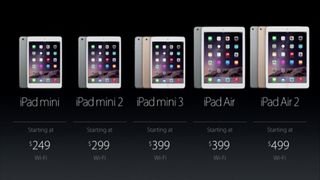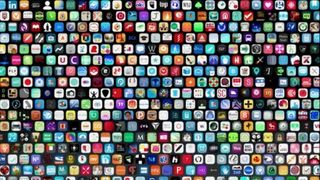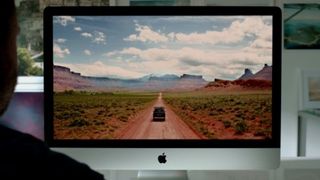Apple's tablets are getting thinner, but its lineup is now far too fat
Apple's all over the place, again

It's 1997, and Steve Jobs is back at Apple reviewing its enormous product range. "Stop!" he shouts. "This is crazy!" Jobs draws a two by two grid with a magic marker. "Here's what we need," he says, marking one column "consumer" and the other "pro", one row "desktop" and one "portable". Jobs told Apple to focus on making four great products and to cancel everything else.
What do you think he'd make of the current Apple range?
As Jobs' biographer Walter Isaacson recalls, Jobs used to like asking Apple engineers and executives for their top ten things Apple should do next. He'd promptly slash seven from the list and say "we can only do three." Towards the end of his life, he similarly advised Google's Larry Page to cut the crap. "The main thing I stressed was focus," he told Isaacson. "What are the five products you want to focus on? Get rid of the rest, because they're dragging you down."

Jobs warned Page that having too many products turned you "into Microsoft. They're causing you to turn out products that are adequate but not great."
Apple currently makes five different iPads (ten if you include the cellular ones), six kinds of Macs, four kinds of iPhones, three kinds of iPods, a set-top box and soon, 34 different styles of watch. And that's before you consider its music and movie businesses, its software business and its imminent role as a global payment service. It's even taking on the phone networks with Apple SIM.
Should somebody be shouting "stop!" and reaching for the whiteboard?
Good advice
Invoking the trope of whether Steve would have done X is often used to slam whatever Apple's currently up to, but I think it's relevant here. Jobs' simplification of the product line was necessary because Apple was trying to do too many things at once. Instead of doing a few things well, it was doing a lot of things badly.
Get daily insight, inspiration and deals in your inbox
Get the hottest deals available in your inbox plus news, reviews, opinion, analysis and more from the TechRadar team.
Today's Apple clearly isn't in the same boat, or at least it isn't at the moment. But the combination of the spectacular iOS 8 launch cock-up, the U2 debacle, one of the worst keynotes we've seen for a long time and an increasingly cluttered product range is enough to give long-term Apple watchers cause for concern.
The iPad range is a good example of what I'm talking about. The new iPad Mini 3 is last year's iPad Mini given TouchID (and nothing else) so it'll appeal more to the enterprise market. Last year's iPad Mini is still hanging about, and it's called the iPad Mini 2. The previous year's iPad Mini is still on sale too, as is last year's iPad Air. And of course there's the newly announced iPad Air 2.
Apple is famous for its grip on the supply chain: it's not the kind of firm that ends up with mountains of unsold products when it updates its product lines. The continuing existence of the oldest iPad Mini clearly isn't a case of clearing out the warehouse, then. It's a deliberate strategy, a way to drive down the price of the cheapest iPad even if that means selling an almost obsolete product.

The new retina iMac is another example of how the Apple grid has broken down. The appeal of a retina screen for pro users is obvious... so Apple's put it in a consumer Mac instead. Not only that, but it's a consumer Mac that's too expensive for many consumers, a consumer Mac with a notebook-spec graphics card, albeit a good one, which is hardly ideal for driving 14.7 million pixels. You can't even hook it up to a Mac Pro using Target Display Mode.
I'm the first to mock the Apple-is-doomed crowd, and I'm not about to join them today. But it's clear that Apple is abandoning the extreme simplicity that helped turn it from a basket case into a world-beater, and that's a dangerous road to go down. As Steve Jobs told Nike CEO Mark Parker, Nike "makes some of the best products in the world. Products that you lust after. But you also make a lot of crap. Just get rid of the crappy stuff and focus on the good stuff."
It was good advice then. It's good advice now, and not just for Nike.
Writer, broadcaster, musician and kitchen gadget obsessive Carrie Marshall (Twitter) has been writing about tech since 1998, contributing sage advice and odd opinions to all kinds of magazines and websites as well as writing more than a dozen books. Her memoir, Carrie Kills A Man, is on sale now. She is the singer in Glaswegian rock band HAVR.

